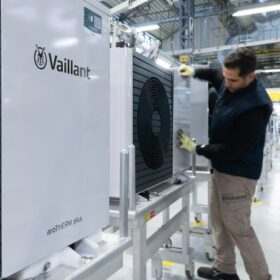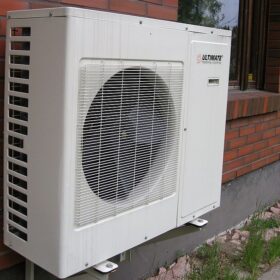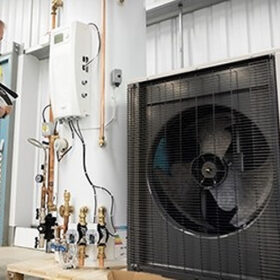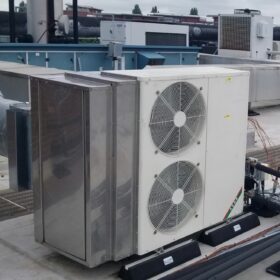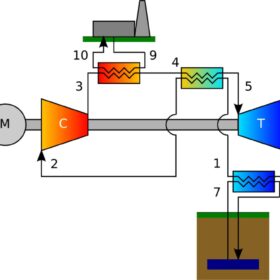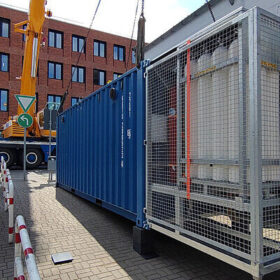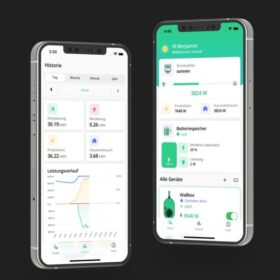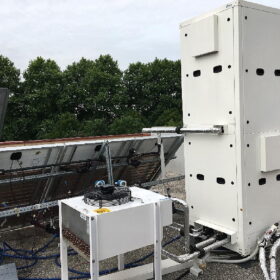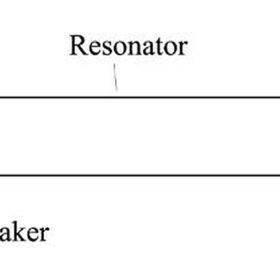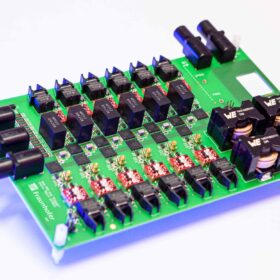European heat pump businesses secure funding
Octopus Energy has agreed to invest $89 million to scale up Kensa Group, a ground-source heat pump business, while KfW IPEX-Bank has agreed to provide $129.6 million of financing to German heat pump manufacturer Valliant.
Control system to allow users take control of air-source heat pumps
Researchers in Korea have designed applied machine learning techniques to enable users to have more control of the timing of heating and cooling in air-source heat pumps. The system is based on backpropagation, which is an algorithm designed to test for errors working back from output nodes to input nodes.
Ideal Heating starts heat pump production in UK
UK-based boiler specialist Ideal Heating has opened its first heat pump production in Hull, England. It said that it has invested around GBP 60 million ($76.5 million) in the new production line.
Dual source heat pump with high seasonal performance factors, near-zero defrosting costs
A UK-Chinese research group designed a dual-source heat pump (DSHP) that recovers the waste heat from the exhaust air along with absorbing the heat from the outdoor air. A prototype installed on the roof of a building in the UK showed remarkable results in terms of coefficient of performance and annual heating bill savings.
Preheating hydrogen with heat pumps may reduce cost of green H2 for heating by 10%
UK researchers suggested utilizing heat pumps to preheat hydrogen to very high temperatures, which they said could reduce the need for hydrogen by more than 20%. The process is also claimed to have the potential to reduce the European industry’s energy demand by approximately 200 TWh per year.
Turnkey solution for self-sufficient electricity, heat supply from hydrogen
Germany-based Ostermeier H2ydrogen Solutions has developed a containerized solution to produce heat and hot water from hydrogen. It includes a photovoltaic inverter, a battery, a heat pump, a heat and cold buffer storage system, an electrolyzer, a compressor, and a fuel cell.
German startup offers app to maximize use of solar power surplus in homes
Clever-PV has developed a manufacturer-independent energy management solution for homes. The app is free to download from app stores and can be connected to PV systems, wall boxes, heat pumps, and other smart devices. This allows users to optimize the use of self-generated solar power.
Residential heat pump based on finned coil evaporator, PVT collectors
Scientists in Italy have developed a 5 kW direct-expansion solar-assisted heat pump that uses alternatively two different evaporator technologies. The cooling of the PV module unit by CO2 evaporation increases power production by 8%.
Phase-change thermoacoustic heat pump for residential, industrial applications
The novel heat pump, developed by a research group in Israel, consists of a loudspeaker, a resonator, and a thermoacoustic core placed inside the resonator. The core includes a cold heat exchanger, a stack, and an ambient heat exchanger.
German research institute unveils 99.74% efficient power electronics for solid-fuel heat pumps
Germany’s Fraunhofer Institute for Applied Solid State Physics (IAF) has developed an ultra-efficient circuit topology for voltage converters with an electrical efficiency of 99.74%. The tech could considerably raise the coefficient of performance for electrocaloric heat pumps and the scientists are now considering components based on semiconductor gallium nitride (GaN) for higher power density and efficiency.
